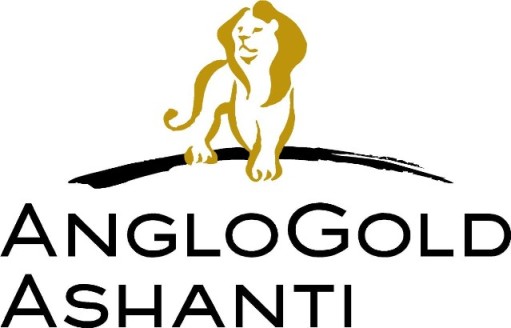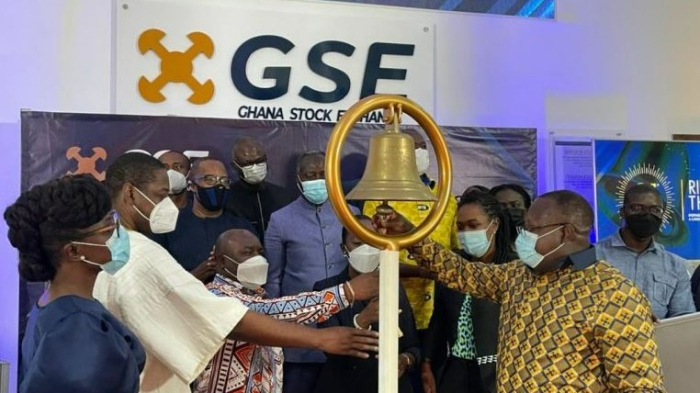 Moody's Investors Service has downgraded corporate family rating and probability of default rating (CFR) of Tullow Oil plc ("Tullow") to B1/B1-PD from Ba3/Ba3-PD.
Moody's Investors Service has downgraded corporate family rating and probability of default rating (CFR) of Tullow Oil plc ("Tullow") to B1/B1-PD from Ba3/Ba3-PD.
The ratings on its USD 650 million 2020 and USD 650 million 2022 senior notes were downgraded to B3/LGD 6 from B2/LGD 5 following the downgrade of Ghana's sovereign rating by Moody's by one notch to B3/negative on 19 March 2015.
The outlook on all Tullow's ratings remains negative.
RATINGS RATIONALE
Tullow retains considerable concentration in Ghana, where its core Jubilee production field is located. As a result, Tullow's CFR remains constrained by the ratings of its largest country of operations.
However, we continue to position Tullow's ratings two notches above the sovereign rating of Ghana to reflect a number of risk mitigating considerations, including the off-shore production and direct international sales of crude, its US dollar-based pricing and its established and diversified financing framework, which does not depend on the domestic banking system in Ghana.
Finally, Tullow also enjoys a limited degree of cash flow diversification with approximately half of production in other West African countries.
Tullow's fundamental business position remains solid, supported by its sizeable oil and gas resource base, which has been enhanced in recent years through successful exploration and appraisal programme leading to the opening of new hydrocarbon basins and significant oil discoveries, including in Ghana, Uganda and Kenya, that underpin the company's long-term production growth trajectory.
In the near term, the rating reflects Tullow's focus on the execution of the TEN project, off shore Ghana, that is set to add materially to the company's high margin oil production in 2016/2017. Strong and timely execution of TEN is the key priority for the company in the next 12 months, and the project remains on target for completion in mid-2016.
Until TEN comes on stream, Tullow's leverage will remain high. We expect it will generate negative free cash flow (FCF) in 2015 and 2016 and will borrow under its recently extended bank facilities to fund the remaining project investment.
Taking into account our revised oil price assumptions ($55/boe Brent in 2015 and $65/boe in 2016), we expect that Tullow's leverage will exceed USD60,000/boe average daily production in 2015/2016, and project that it will decline steadily from 2016/2017 as the company adds production and returns to FCF generation.
Finally, Tullow is inherently exposed to the oil price fluctuations. In 2015, the company has materially reduced its exploration budget, suspended the dividends and is implementing a number of measures to reduce fixed and operating costs to adjust the operations to the lower oil price environment. It is managing oil price risks proactively and its cash flows will be materially supported by the existing hedging arrangements in 2015/2016.
Tullow's conservative financial policies and strong project execution continue to support the ratings.
Liquidity
Tullow maintains good liquidity position. In March 2015, the company negotiated $450 million extension of commitments under its bank facilities, increasing its 2019 RBL facility to $3.7 billion (from $3.5 billion) and its 2017 corporate credit facility to $1 billion (from $0.75 billion).
Tullow has also agreed with the lenders the amendment of the financial covenants under the committed facilities to address the risk of potential non-compliance with covenants during the investment period in the TEN project in 2015/2016.
Tullow has no maturities before TEN comes on stream. At the end of 2014, the company reported $118 million in unrestricted cash (in addition to $201 million in cash balances at the accounts of its JVs).
Rating Outlook
The negative outlook mirrors the negative outlook on Ghana, even though the fundamentals of the business remain strong.
We are looking in particular towards the timely development of the TEN project to help Tullow to recover its credit metrics and gain financial flexibility to manage any fiscal pressures in Ghana.
In this context, we are following the ongoing arbitration procedure between Ghana and Cote d'Ivoire over the maritime border, that relates to the area where the TEN project is located.
In particular, the Government of Côte d'Ivoire has recently applied for provisional measures to be ordered in Ghana's maritime boundary dispute to require Ghana to suspend ongoing exploration and exploitation operations in the disputed area until the resolution of the dispute, which may affect the timely execution of the TEN project.
The negative outlook also captures the increased uncertainty generated by the maritime border dispute with Côte d'Ivoire.
What Could Change the Rating - Down
The B1 ratings could come under pressure should (i) Tullow suffer significant delays and/or cost overruns in progressing its major TEN project and/or (ii) experience a significant and sustained deterioration in production levels or further decline in oil price realizations, which would put pressure on its internal cash flow generation and result in more pronounced and sustained balance sheet leveraging than currently expected. Weak liquidity position may also drive the downgrade of the ratings.
The rating may also be downgraded in an event of a downgrade of the ratings of Ghana.
What Could Change the Rating - Up
In spite of the profitable organic growth, the B1 rating remains constrained by the sizable country exposure to Ghana. The upgrade of the rating would require an improved geographical diversification of the company's reserve base and production profile towards lower risk jurisdictions, and a recovery in the financial profile, with debt/average daily production falling to below USD 40,000/boe and RCF/Debt improving towards 50% level.
Tullow Oil is a leading independent oil and gas exploration and production company with a large and diversified portfolio of interests focused on Africa and the Atlantic margins. In 2014, the company reported an average production (on a working interest basis) of 75,200 barrels of oil equivalent per day and sales revenue of USD2.2 billion.
The principal methodology used in these ratings was Global Independent Exploration and Production Industry published in December 2011. Other methodologies used include Loss Given Default for Speculative-Grade Non-
Financial Companies in the U.S., Canada and EMEA published in June 2009. Please see the Credit Policy page on www.moodys.com for a copy of these methodologies.































